The Pelican Way of LIFE project aims to reduce the threats to Dalmatian pelicans and improve their habitat at 27 sites in Romania, Bulgaria, Greece and Ukraine. These objectives will be achieved through the following actions.

Study and research
While the Dalmatian pelican has been the focus of conservationists for some time, some important knowledge gaps still exist that partially undermine its conservation. To remedy this we will study the current population status, movements, dispersal, threats and key sites along the flyway, using satellite telemetry, ringing and focused studies and counts. In partnership with regional electricity distribution companies in Romania, Bulgaria and Greece, we will also assess the risk to the birds of collisions with local power lines. This will allow us to map high-risk areas at key sites, and identify those power lines that are potentially suitable for the installation of diverters.
In order to reduce human-wildlife conflict we will engage with key stakeholders (mainly fishermen and owners of fisheries and reservoirs) to assess their attitudes towards fish-eating birds. As birds don’t recognise borders, the methods used for species monitoring and research will be unified, and common protocols will be developed for all project countries. A project GIS database will be also set up.
Conservation actions
The core element of the project includes three concrete conservation actions which will cumulatively contribute to the protection and enhancement of Dalmatian pelican populations.
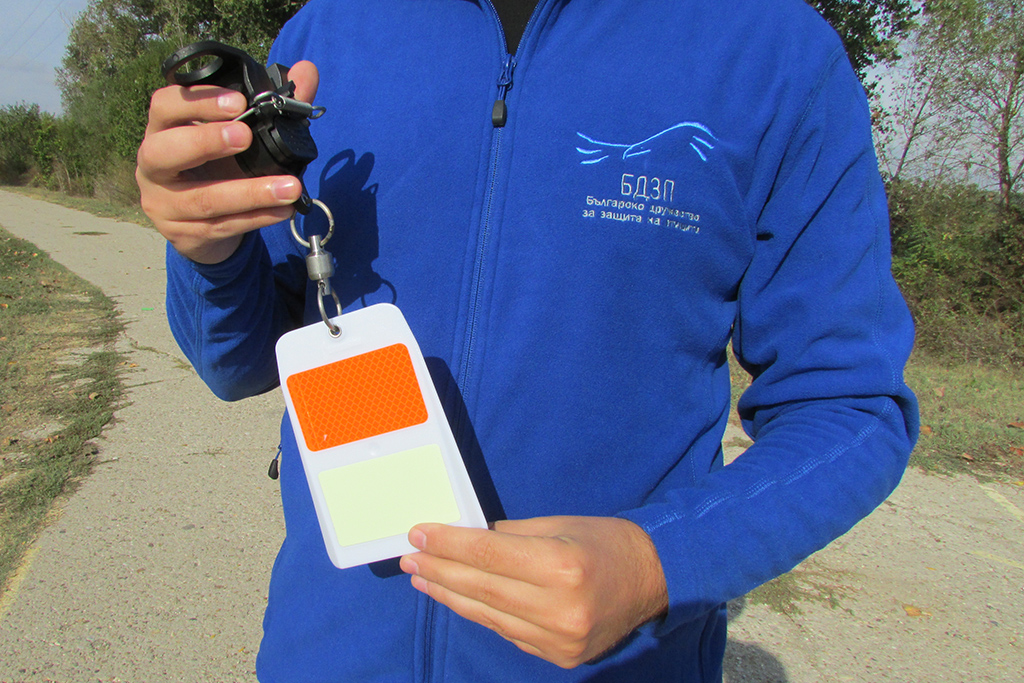
Reduce collision risk
We aim to reduce the risk of collision for pelicans at key sites, including the Burgas Wetlands (Bulgaria), Danube Delta (Romania), Messolonghi and Amvrakikos (Greece), by installing bird diverters on at least 10 kilometres of power lines. This action will take place in cooperation with utility companies in Romania, Bulgaria and Greece.
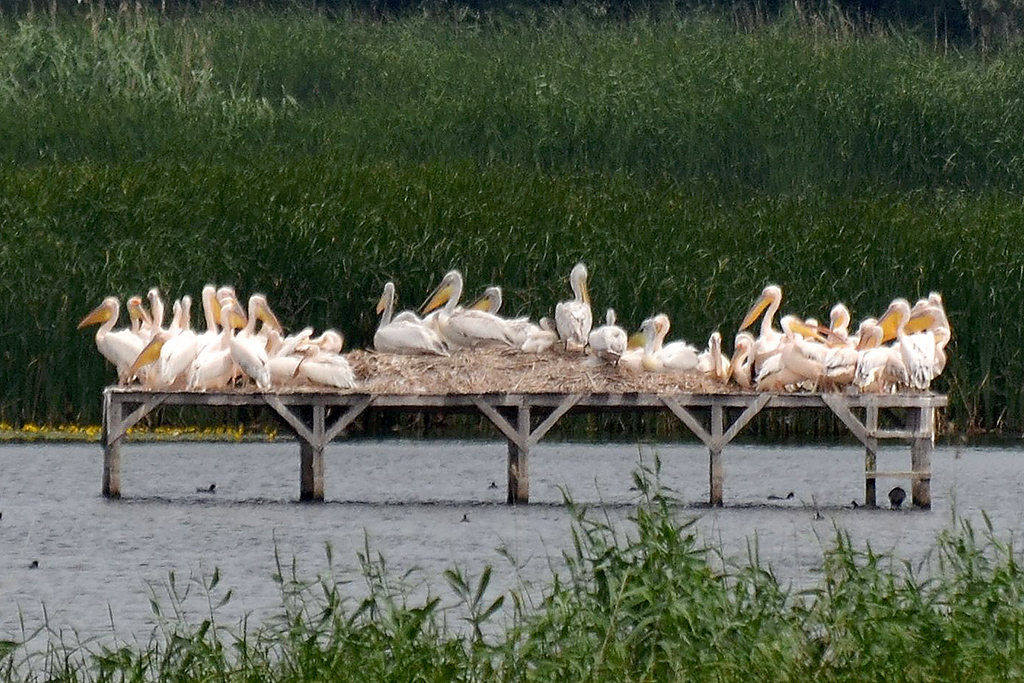
Improve breeding and roosting
In order to improve the breeding and roosting situation of Dalmatian pelicans, artificial platforms (which have already proven to be effective) will be built or enlarged along the flyway at key sites in Bulgaria (Belene Island and the Burgas Wetlands) and Ukraine (Danube Biosphere Reserve).
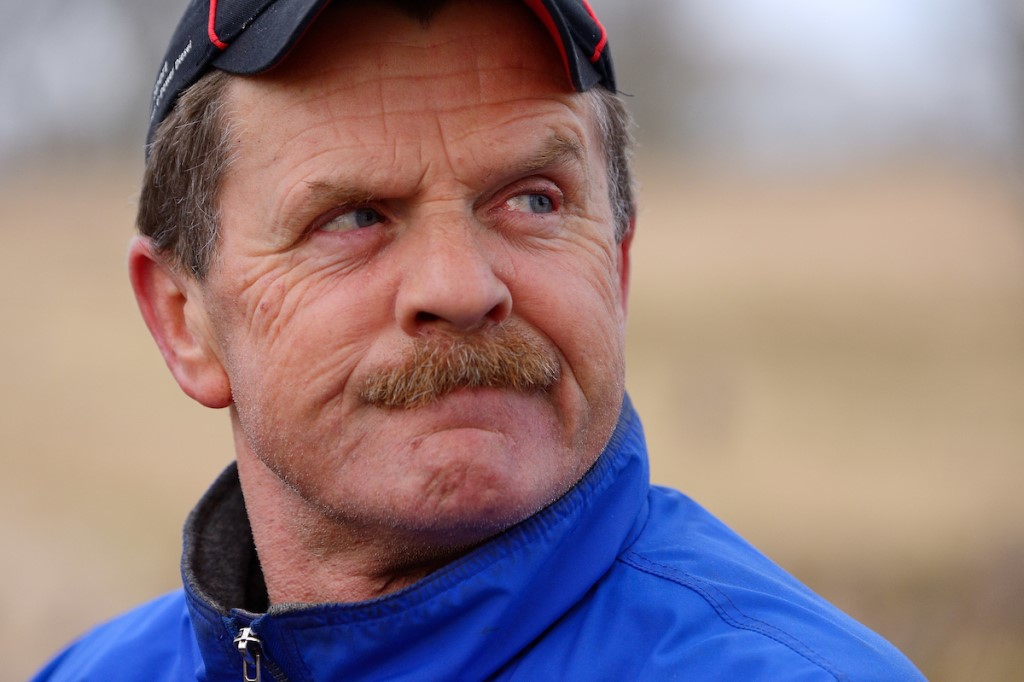
Establish patrolling
To reduce the persecution and disturbance of pelicans new patrolling schemes will be established at seven sites in Romania (Lake Tasaul), Bulgaria (Belene, Studen Kladenetz, Ovcharitza and Rozov Kladentez) and Greece (Messolonghi Wetlands and Amvrakikos Gulf). This will be done in collaboration with local and regional management authorities and hunting associations.
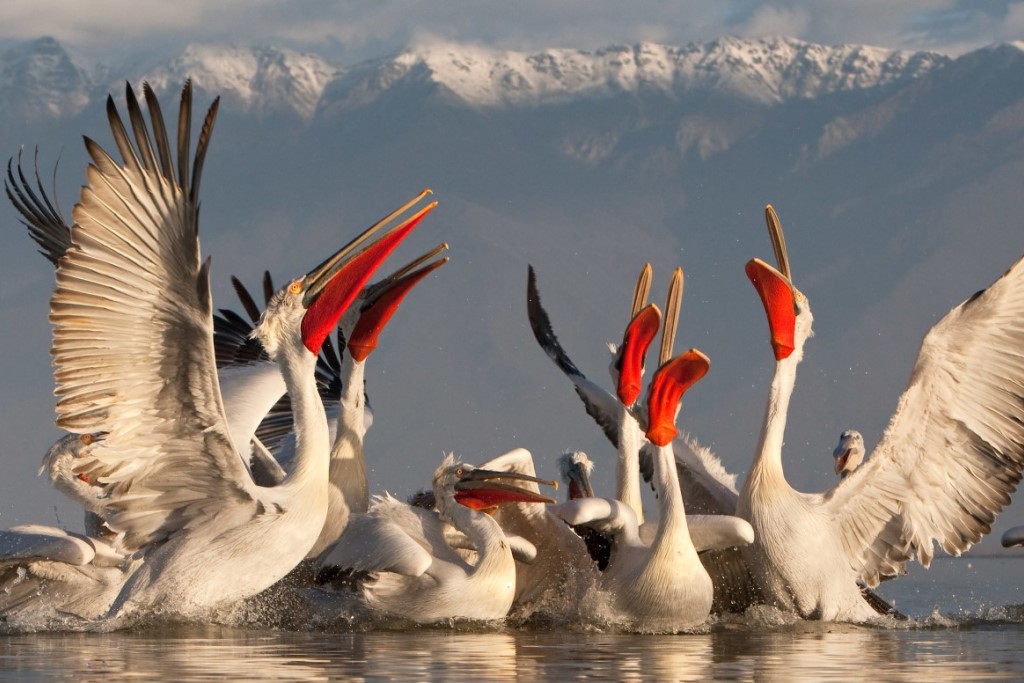
Monitoring
The monitoring of key indicators is critical to the assessment of our conservation actions. Such indicators relate to disturbance, persecution, illegal fishing, patrolling schemes, roosting and nesting sites, numbers of breeding pairs, numbers of pelicans during the non-breeding period, and the effectiveness of bird diverters on power lines.
We will also measure the socio-economic impact of the project, and its impact on nature-based services.
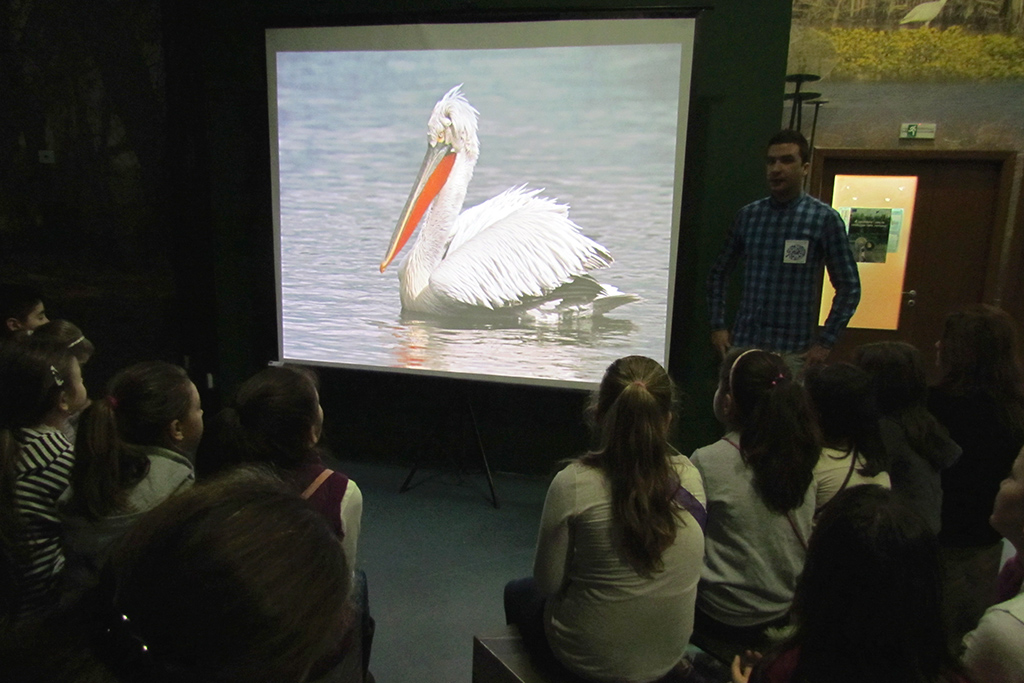
Public awareness
For this project to achieve sustainable results we need to raise public awareness of the importance of Dalmatian pelican conservation, and to engage the support of key stakeholders. A public information campaign will be developed, including mass media activities, events, a website, information panels and social networking. Dalmatian pelican awareness programmes focused on the younger generation will also be implemented in key local communities.
We also plan to strengthen the capacity of pelican conservationists in neighbouring countries (Albania, North Macedonia) and to organise related seminars and workshops for key stakeholders, in order to gain their support for future conservation efforts.
To boost support for pelican conservation further, we will promote nature-based tourism and other nature-related businesses, thereby increasing revenue for local communities. And last but not least, we will network with other projects and organise events focused on a scientific audience.